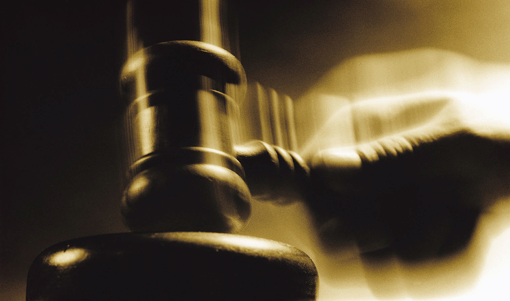 Today, the Supreme Court struck down the 37 year old D.C. ban on handguns. Justice Antonin Scalia delivered the opinion of the court and said that the Constitution does not provide for the absolute ban of hand guns. The case was brought forward when Dick Heller, who is an armed security officer, filed suit after his application to keep a handgun in his home and was rejected. That's right, he wanted to keep the gun in his home for personal protection, but the city wouldn't allow it.
Today, the Supreme Court struck down the 37 year old D.C. ban on handguns. Justice Antonin Scalia delivered the opinion of the court and said that the Constitution does not provide for the absolute ban of hand guns. The case was brought forward when Dick Heller, who is an armed security officer, filed suit after his application to keep a handgun in his home and was rejected. That's right, he wanted to keep the gun in his home for personal protection, but the city wouldn't allow it.The 2nd amendment reads: A well regulated Militia being necessary to the security of a free State, the right of the People to keep and bear arms shall not be infringed. It is debated whether this amendment is in affect today because we have no need for militia since we have an army. However, the first part of the amendment gives a reason, but, as Justice Scalia points out in the courts opinion, does not limit the 2nd part or in law terms, the operative clause. Until a new amendment is passed to change the 2nd Amendment, the right of the citizens to bear arms cannot be infringed upon.
If you were to look through history, the first thing a government does before it become a dictatorship or oppresses its people is to take away the right to own a weapon and right to defend one’s self. This is why the forefathers wrote this into the Bill of Rights. It was a matter of great importance to them, evidenced by the fact that it’s the 2nd amendment, not the 10th, 11th, or 12th. It’s hard to comprehend tyranny in the United States; and it’s admittedly not likely happen anytime soon. However, it is not beyond the realm of possibility.
That being said, I don’t believe in unrestricted gun rights. There is no such thing as a limitless right. You have the right to free speech, but you cannot yell fire in a crowded theatre. You have the right to practice religion freely, but if your religion involves polygamy or sacrifice, you cannot lawfully practice those elements of that religion. The same stands here, I don’t believe the felons or the mentally incapacitated should be allowed to own a firearm because that would be an endangerment to the public. However, I am a law abiding citizen and a gun owner. If someone were to break into my house, I would hope that I would be able to defend my self, my family, and my property from harm.
A blanket law like the D.C. handgun ban in unconstitutional in that it stops everyone, including the law abiding, from owning a handgun. Unlike Kennedy v. Louisiana, which was decided yesterday, I fully agree with court and its opinion in this case. It seems that the federal government has been on a streak of trying to strengthen its power. It has been taking power away from the states, thereby the people, as it did yesterday by banning executions of child rapists even when the people of Louisiana supported the law. This landmark judgment is undoubtedly a win for the people.
 Today, the US Supreme court overturned the Louisiana law permitting the execution of child rapists.
Today, the US Supreme court overturned the Louisiana law permitting the execution of child rapists.